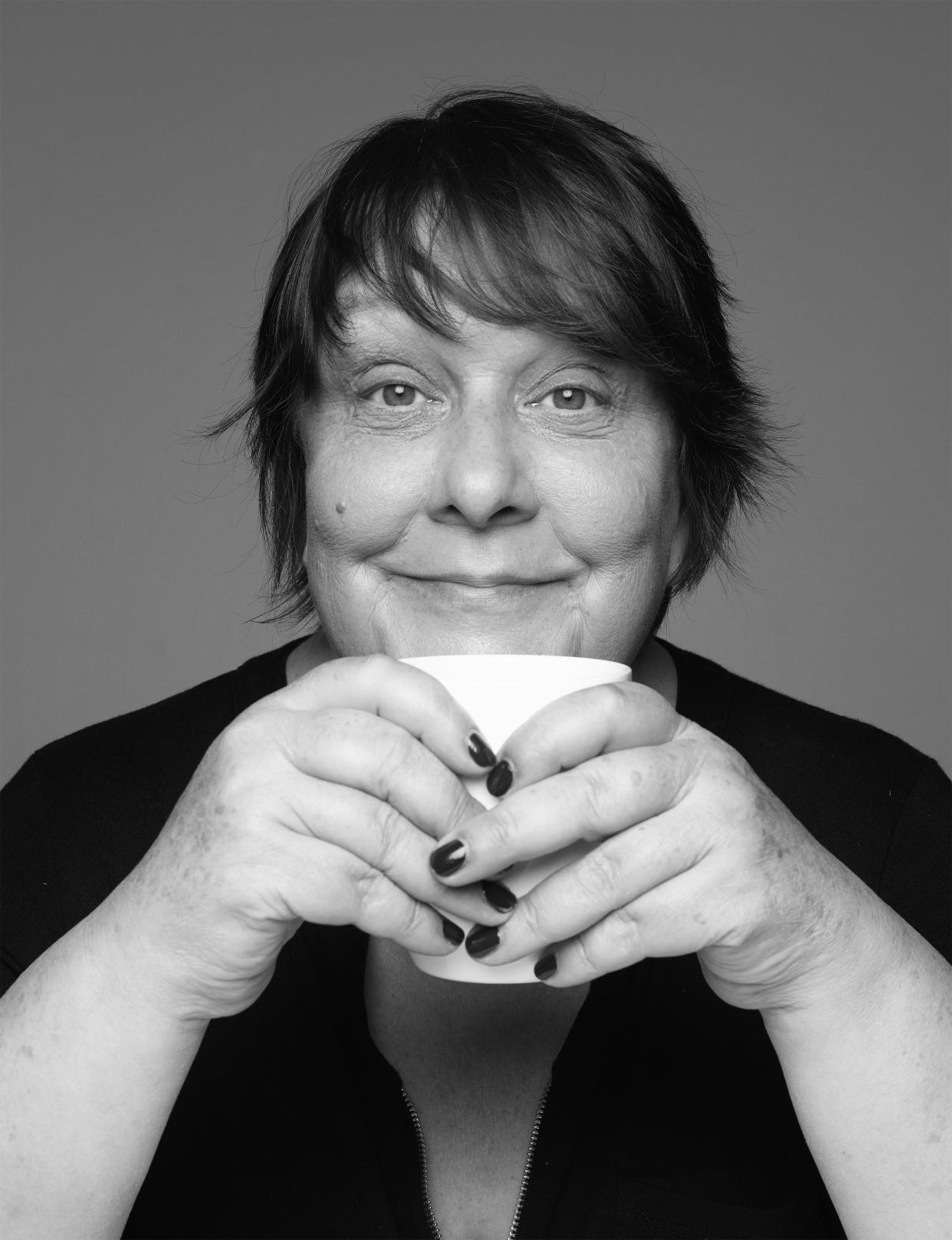Kathy Burke considered taking own life during menopause: 'I’ve always had bouts of depression, but this was something else entirely'
Kathy Burke has opened up about depression and the suicidal thoughts she had during the menopause.
The all-star director, writer, comedian and actor, 58, reflected on the difficult period in her early 50s, which followed her recovery from a sickness that led to a dependence on steroids. Hitting the menopause then further led to a deterioration in her mental health, with hormone replacement therapy (HRT) not an option for her due to other medication she was on.
"I started to have pretty dark, suicidal thoughts," she told The Observer.
"I’ve always had bouts of depression but this was something else entirely. I don’t mind telling you that it was quite frightening.”
Burke recalled being worried about who would find her body if she did end her life, but how after making a plan to reduce this likely trauma for someone else, felt a bit more stable.
"It was weird, it was sort of, once I’d made that decision, I could relax … Then the depression started to lift a wee bit."
Read more:Carol Vorderman says menopause made her 'feel suicidal' but HRT really helped

Now Burke, who directed Jennifer Saunders in a West End production of Oscar Wilde’s comedy Lady Windermere’s Fan in 2018, also known for roles in French and Saunders and Absolutely Fabulous, is now 'so glad' she didn't go through with it.
"Oh, but I’m so glad I didn’t kill myself during menopause," she emphasised.
"That would have been a bit of a shame. But listen, that didn’t happen. I came through the other side, and I’m f***ing delighted I did."
Thankfully, more is being done to raise awareness of the menopause and the help available through other celebrities like Lisa Snowdon, Davina McCall and Carol Vorderman – who also 'felt suicidal at times' – opening up about their experiences.
The menopause occurs when periods stop due to lower hormone levels, typically between the ages of 45 and 55, or sometimes younger. Menopause and perimenopause (when you have symptoms before this point) can cause both physical and mental symptoms. Here's what to be aware of, but whatever you're going through, it's important to remember that help is out there.
Read more: 'Really frightening': Davina McCall reveals perimenopause caused 'overnight' changes
Menopause symptoms
Mental health symptoms
Common mental health symptoms, according to the NHS, can include:
Changes to your mood, like low mood, anxiety, mood swings and low self-esteem
Problems with memory or concentration (brain fog)
Physical health symptoms
Common physical symptoms include:
Hot flushes, when you have sudden feelings of hot or cold in your face, neck and chest which can make you dizzy
Difficulty sleeping, which may be a result of night sweats and make you feel tired and irritable during the day
Palpitations, when your heartbeats suddenly become more noticeable
Headaches and migraines that are worse than usual
Muscle aches and joint pains
Changed body shape and weight gain
Skin changes including dry and itchy skin
Reduced sex drive
Vaginal dryness and pain, itching or discomfort during sex
Recurrent urinary tract infections (UTIs)
Symptoms can last for months or years, and can change over time.
Read more: Lisa Snowdon says it's 'still hard to talk about' five-year domestic abuse ordeal
Watch: Lisa Snowdon shares her menopause struggles
Menopause treatments
The NHS urges that getting advice and help for symptoms early can reduce the impact that perimenopause and menopause may have on your health, relationships and work.
There are lifestyle changes you can make yourself to help, such as eating well, exercising and looking after your mental wellbeing, as well as treatment options available. The main one is HRT, which involves using oestrogen to replace your body's own levels during menopause, which can help relieve most symptoms.
Other options available include testosterone gel for reduced sex drive, mood and energy levels (it's not currently licensed for use in women, but can be prescribed after the menopause by a specialist doctor), oestrogen for vaginal dryness and discomfort, non-hormone treatments if you cannot, or chose not to, have HRT, antidepressents to help with symptoms of depression or anxiety, or the talking therapy cognitive behavioural therapy (CBT).
Our useful guide runs through other things you need to know about the menopause.
See a GP or nurse if you think you have perimenopause or menopause symptoms. You can also find your nearest NHS or private menopause sepcialist on the British Menopause Society website, find an NHS psychological therapies service here, watch videos of women talking about living with menopause here and find out more information on this NHS page.
You can find support and advice from The Menopause Charity.
Experiencing suicidal thoughts can be complicated, frightening and confusing, but help is out there. See this page on what to expect from talking with the Samaritans.
For more information on how to support someone with suicidal thoughts, please see this Samaritans page.
You can also call the Samaritans now for free, from any phone, at any time, on 116 123 – a friendly voice will be there to listen – or email jo@samaritans.org for a reply within 24 hours.
If you think someone is in immediate danger, the quickest way to get help is to call an ambulance on 999.


